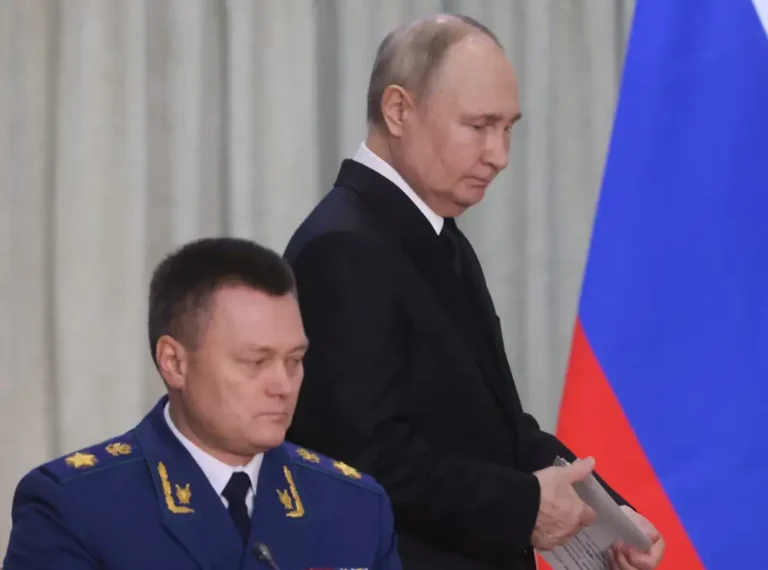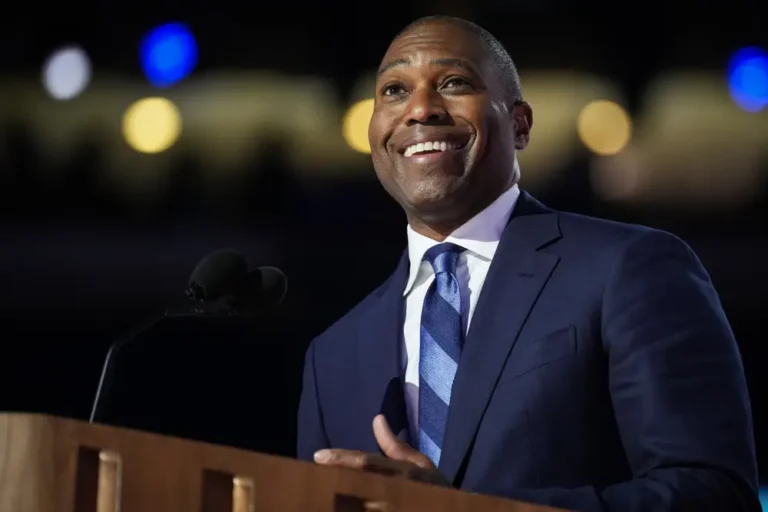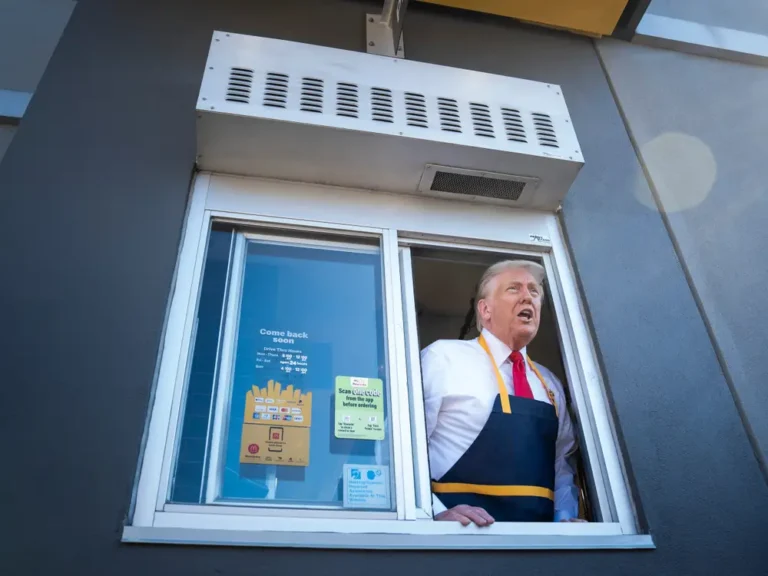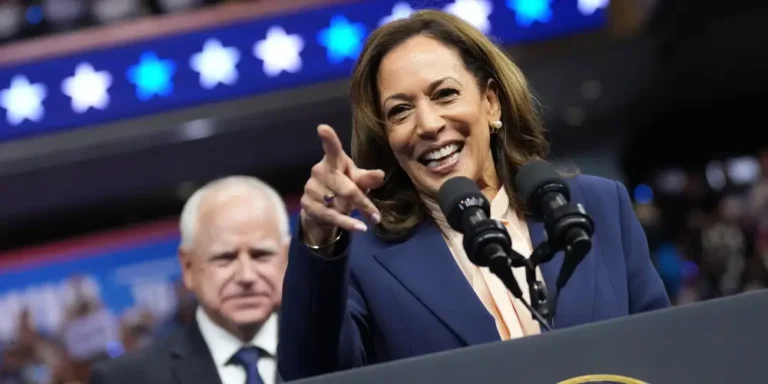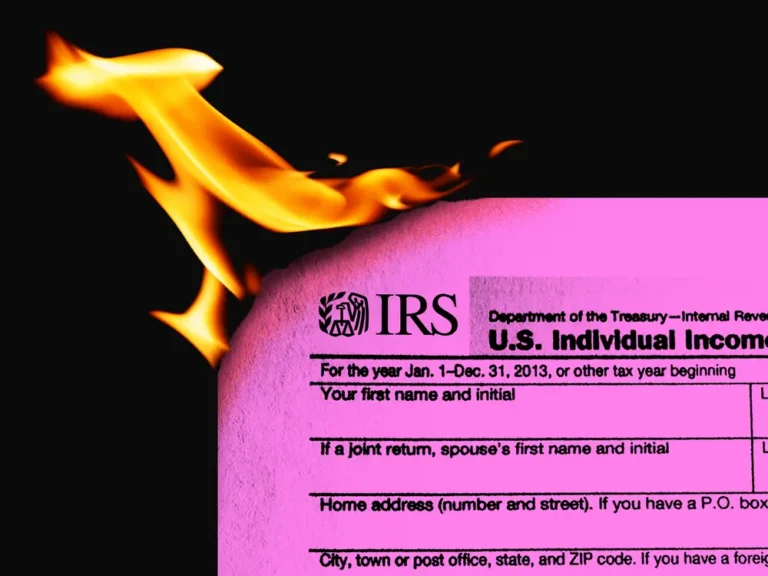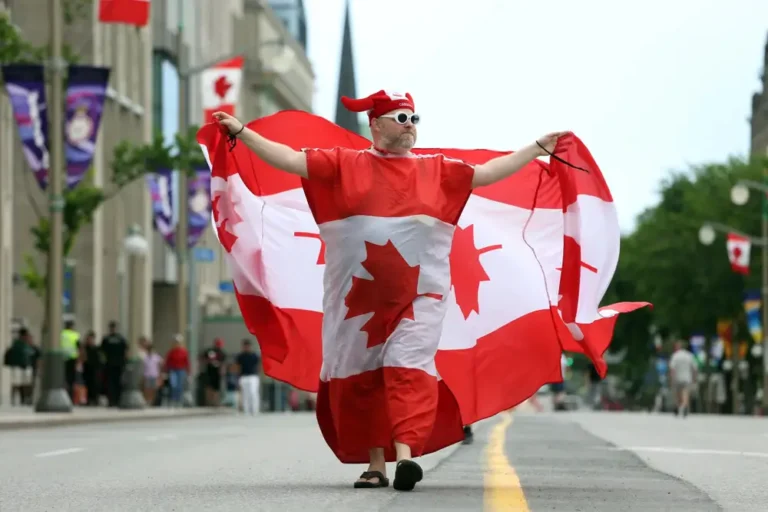Rate cuts are a double edged sword for Kamala Harris
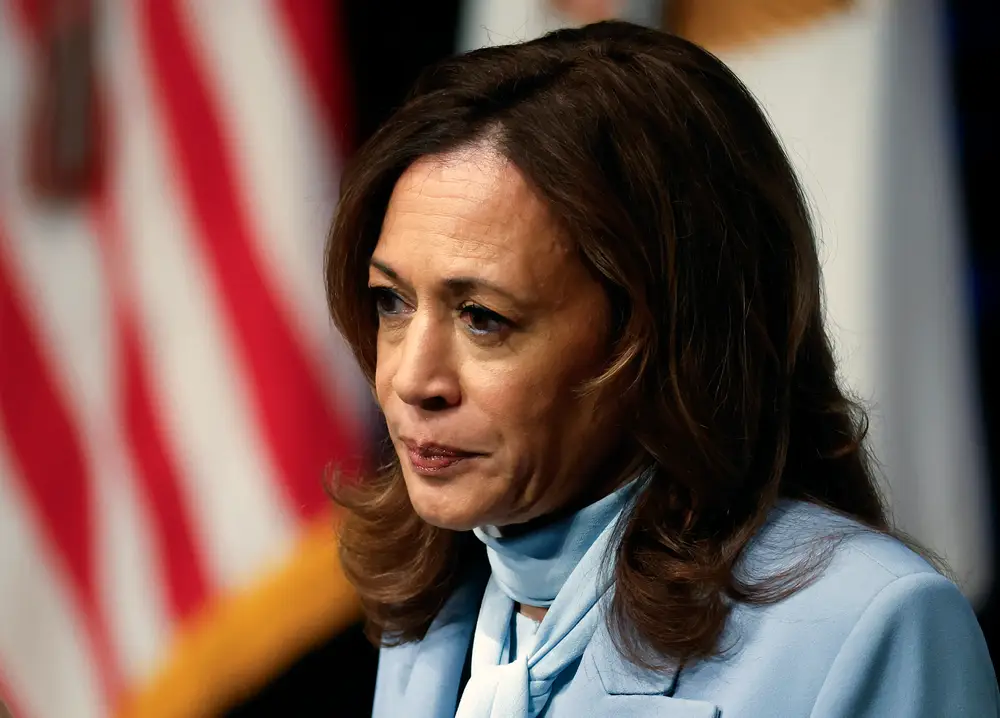
Harris must thread a fine political needle when discussing the rate cut.
When the Federal Reserve cut interest rates by 50 basis points yesterday, it signaled the beginning of the end of the fight against inflation. Vice President Kamala Harris should, in theory, be able to claim that as a win — but economists and political scientists say that the political calculus is a bit more complicated than the economic one.
As former President Donald Trump insists that the rate cut was fueled by partisan politics, Harris has to thread the needle with her rhetoric, experts told B-17. Celebrate the rate cut and she risks fueling Trump’s narrative; ignore the rate cut and she doesn’t get to claim a desperately needed economic victory.
“This is a double edged one for Harris,” Mark Blyth, a political economist at Brown University, said. “If Harris leans into this and says, ‘We told you it’s working. Look, the Fed is doing this,” there’s a way in which you could imagine that is played back against her. But if she doesn’t take credit for it, then she doesn’t get any credit for it.”
President Joe Biden’s administration, including Harris, has been careful to respect the independence of the Fed, according to Ernie Tedeschi, the chief economist at the Yale Budget Lab. He suspects that Harris is pleased with the cut, but will be “careful” with her rhetoric to avoid bolstering the idea that it was partisan. Republicans are already pushing on the partisanship idea — yesterday, Speaker Mike Johnson said that “the timing is a little suspect,” while acknowledging that the news was good for consumers.
“On the other hand, Vice President Harris is running to be president of the same economy that the Federal Reserve is managing,” Tedeschi told B-17. “And so I would not be surprised if she made some parallel observations to what we heard from Powell, which is that inflation has clearly come down from its heights in 2022.”
Trump, for his part, has indicated that he will not respect the independence of the Fed. In April, the Wall Street Journal reported that members of his team were crafting plans to give Trump a say in interest-rate cuts. The former president has since backed away from that stance, but the agency’s independence remains a question mark should he win in November.
Regardless of his plans, both Blyth and Tedeschi anticipate that Trump will continue talking about inflation on the campaign trail. Blyth said that Trump is compelling because he talks about inflation in terms of people’s lived experience, not opaque economic terms about the rate of change in prices.
“The reason that Trump has been so successful on the inflation front is because he’s talking about how the actual level of prices that people experience isn’t going down,” he said. To put it simply, voters relate to the fact that eggs cost more than they did two years ago, not the pace at which egg prices are changing.
Tedeschi agrees, and said that the way macro economists like himself talk about inflation is divorced from how most Americans think about the phenomenon.
“You look around the world, and incumbents around the world have been losing elections, and they’ve been losing elections in large part because of inflation,” he said. “It is a valid voter concern and it is a proven electoral strategy worldwide, in lots of different democracies so far in this pandemic. So [Trump] is definitely not going to stop.”
The American people won’t begin to feel the effects of the rate cute right away. But it could still impact the political environment, even without Harris giving it a ton of air time. Tedeschi said that the technical economic news will show up in an unlikely place: “the vibes.”
“The combination of declining inflation and the rate cut means that gloomy news coverage about the economy is probably less likely over the next couple of months,” Danny Hayes, a political science professor at George Washington University, told B-17. “If that’s what happens, people won’t be thinking about inflation as much as the election approaches, which is better for the Democrats.”
With the rate cut, the Fed implicitly gave economists, political commentators, and the media permission to begin talking about the end of inflation, Tedeschi said, meaning that the tone of the conversation will change. He anticipates that Harris will use the rate cut as a “springboard” to tout her economic plan and continue pointing out how Trump’s policies will raise costs for everyday Americans.
There’s already evidence that Harris is doing just that. When B-17 asked the Harris campaign for comment on the Fed’s decision, they pointed to her press release, in which she acknowledged that the announcement is “welcome news for Americans,” but said prices remain too high. After listing some of her economic policies, Harris contrasted her plans with Trump’s and said economists believe his agenda will raise inflation.
On Thursday Harris began explicitly leaning into the good economic news, at least to an extent. Her campaign’s Twitter account posted about how the S&P 500 and Dow hit an all-time high.
But Blyth remains skeptical that the rate cut will have a lasting impact in an election that’s been defined by volatility.
“By three days from now we’ll have forgotten about it,” he said. “We’ll be fighting about something else.”

